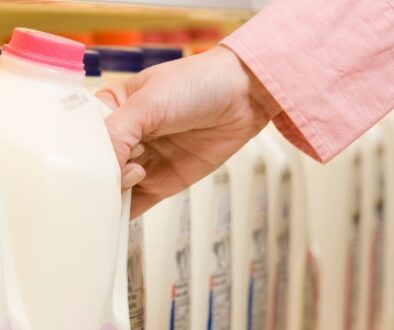USDA Partnership With NWSA Seeks To Ease Port Congestion
WASHINGTON — U.S. Agriculture Secretary Tom Vilsack today announced plans for prepositioning containers of agricultural goods near port terminals to help improve service for shippers of U.S.-grown agricultural commodities and ease port congestion.
USDA is partnering with Northwest Seaport Alliance (NWSA) to enhance access to a 49-acre “pop up” site to accept either dry agricultural or refrigerated containers for temporary storage at NWSA in Seattle. This will reduce operational hurdles and costs, making it so products can more quickly be loaded on ships at the export terminals. NWSA includes the marine cargo operations of the ports of Seattle and Tacoma and is the fourth-largest container gateway in the United States.
Port congestion-induced impacts to vessel schedules and prioritization of returning containers empty to Asia have significantly raised barriers for exporting agricultural products in containers, resulting in lost markets and disappointed customers.
NWSA has seen a nearly 30% decline in the export of agricultural commodities in the last six months of 2021, and the ratio of loaded versus empty container exports has shifted to predominately empty containers since May 2021.
USDA’s efforts to increase capacity at NWSA follow the department’s announcement in January of a similar partnership with the Port of Oakland in California and a U.S. Department of Transportation partnership with the Port of Savannah in Georgia. USDA continues to seek opportunities to partner with additional ports or other intermodal container facilities to help U.S. farmers and agricultural producers move their product to market and manage the short-term challenges while pressing the ocean carriers to restore better levels of service.
Meanwhile, the National Milk Producers Federation (NMPF) and U.S. Dairy Export Council (USDEC)joined the U.S. House of Representatives’ bipartisan Problem Solvers Caucus in a roundtable this week to discuss additional steps Congress could take to address the ongoing export supply chain crisis facing American exports, including dairy.
Jaime Castaneda, executive vice president for policy development and strategy for USDEC and NMPF, spoke during a panel discussion moderated by Reps. Jim Costa, D-Calif., and Dusty Johnson, R-S.D., to identify the challenges exporters are facing in securing container and vessel space, unprecedented congestion and record fees to ship products to international customers.
“A conservative estimate of the supply chain challenges for dairy exporters in 2021 is over $1.5 billion in higher direct costs, reduced value and lost sales,” Castaneda noted in his remarks. “If this continues, we risk losing ground to our competitors in highly competitive foreign markets, which has ripple effects on the paychecks of American dairy farmers and the thousands of workers who support the export supply chain.”
Jim Mulhern, president and CEO of NMPF, notes the Problem Solvers Caucus is known for its laser-like focus on delivering practical legislative solutions.
“We’re proud to be part of that process today in identifying additional areas where Congress can act to help alleviate the supply chain snarls that have been limiting U.S. dairy producers’ ability to export,” Mulhern says.
Krysta Harden, president and CEO of USDEC, adds, “Last year proved to be a very difficult and unsustainable environment for U.S. dairy exporters, as supply chain challenges risked American agricultural exporters’ reputation as reliable suppliers. I have heard directly from customers their intent to switch suppliers to our competitors solely because of these congestion issues.”
Other organizations speaking at the event included the American Trucking Association, National Retail Federation, Agricultural Transportation Coalition and the National Association of Manufacturers.
Keep Up To Date On Cheese Industry News
Find all of HART Design & Manufacturing current industry news here.
Source: CMN




